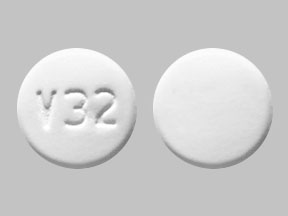Albendazole Disease Interactions
There are 4 disease interactions with albendazole.
Albendazole (applies to albendazole) myelosuppression
Major Potential Hazard, Moderate plausibility. Applicable conditions: Bone Marrow Depression/Low Blood Counts
Reversible leukopenia has been reported during albendazole therapy. Rarely, granulocytopenia or pancytopenia have resulted in death. Therapy with albendazole should be administered cautiously in patients with predisposition to myelosuppression. Clinical monitoring of hematopoietic function prior to each cycle of albendazole and every two weeks during therapy is recommended. Albendazole can be continued with a modest, non- progressive decrease in leukocyte count and absolute neutrophil count.
References
- Fernandez FJ, Rodriguezvidigal FF, Ledesma V, Cabanillas Y, Vagace JM (1996) "Aplastic anemia during treatment with albendazole." Am J Hematol, 53, p. 53-4
- (2001) "Product Information. Albenza (albendazole)." SmithKline Beecham
Albendazole (applies to albendazole) hepatobiliary dysfunction
Moderate Potential Hazard, Moderate plausibility. Applicable conditions: Liver Disease, Biliary Obstruction
Albendazole is converted to its biologically active metabolite and further metabolized to an inactive form by the liver. Biliary excretion of albendazole is the primary route of elimination and biliary obstruction results in increased albendazole serum concentration and AUC. Metabolism and therapeutic activity may be altered in patients with hepatic impairment. Elevated liver transaminase levels have been reported in 16% of patients receiving albendazole. Therapy with albendazole should be administered cautiously in patients with compromised hepatic function. Clinical monitoring of hepatic function is recommended prior to initiation of each cycle of albendazole and at least every two weeks during therapy. Patients with elevated liver enzyme test results are at increased risk for hepatotoxicity and bone marrow suppression. Discontinue therapy if liver enzymes are significantly increased or if a clinically significant decrease in blood cell counts occur.
References
- Choudhuri G, Prasad RN (1988) "Jaundice due to albendazole." Indian J Gastroenterol, 7, p. 245-6
- Marriner SE, Morris DL, Dickson B, Bogan JA (1986) "Pharmacokinetics of albendazole in man." Eur J Clin Pharmacol, 30, p. 705-8
- (2001) "Product Information. Albenza (albendazole)." SmithKline Beecham
Albendazole (applies to albendazole) neurologic dysfunction
Moderate Potential Hazard, High plausibility. Applicable conditions: Intracranial Hypertension, Seizures
Albendazole therapy of neurocysticercosis can induce an inflammatory response within the CNS that precipitates seizures and cerebral hypertension. Therapy with albendazole for neurocysticercosis should be administered cautiously in patients with or predisposition to seizures. The use of corticosteroids during the first week of therapy to prevent cerebral hypertension and anticonvulsant therapy as required is recommended.
References
- Cruz I, Cruz ME, Carrasco F, Horton J (1995) "Neurocysticercosis: optimal dose treatment with albendazole." J Neurol Sci, 133, p. 152-4
- (2001) "Product Information. Albenza (albendazole)." SmithKline Beecham
Albendazole (applies to albendazole) renal impairment
Moderate Potential Hazard, Moderate plausibility. Applicable conditions: Renal Dysfunction
The pharmacokinetics of albendazole in patients with impaired renal function have not been studied. Caution is advised if used in these patients.
References
- (2001) "Product Information. Albenza (albendazole)." SmithKline Beecham
Albendazole drug interactions
There are 123 drug interactions with albendazole.
Albendazole alcohol/food interactions
There is 1 alcohol/food interaction with albendazole.
More about albendazole
- albendazole consumer information
- Check interactions
- Compare alternatives
- Pricing & coupons
- Reviews (9)
- Drug images
- Side effects
- Dosage information
- During pregnancy
- Drug class: anthelmintics
- Breastfeeding
- En español
Related treatment guides
Drug Interaction Classification
| Highly clinically significant. Avoid combinations; the risk of the interaction outweighs the benefit. | |
| Moderately clinically significant. Usually avoid combinations; use it only under special circumstances. | |
| Minimally clinically significant. Minimize risk; assess risk and consider an alternative drug, take steps to circumvent the interaction risk and/or institute a monitoring plan. | |
| No interaction information available. |
Further information
Always consult your healthcare provider to ensure the information displayed on this page applies to your personal circumstances.


